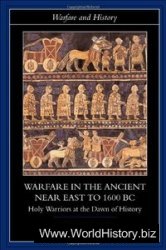In the second century the administration of the empire had been carried out by the provincial governors and their staff, a few hundred in all. By the fourth century government had become something very different. A mass of office holders had been created around the emperor himself, who now enjoyed being the centre of a court. The expansion began under Constantine who seems to have been anxious to reward potential opponents with posts and titles that he arranged in a hierarchy of grades. The administration grew steadily from there. One estimate is that there were 30,000 to 35,000 officials by the late fourth century. Now that urban life was in atrophy and the decuriones ever less willing to give patronage to their cities, government office became the most certain way of achieving status. The competition for these posts encouraged the buying and selling of offices and the emergence of new patterns of patronage as those with power and influence exercised them on behalf of dependants. As the administration became more complex and many officials distant from the eye of the emperor corruption also appears to have spread. A letter sent by Licin-ius to a provincial assembly in 317 orders that any decurion who tries to evade city service by gaining an imperial post through ‘venal patronage’ shall be sacked.
The proliferation of official posts at the centre of the administration placed an even greater focus on the emperor. There was a paradox here. Just as the emperor had become in theory a semi-divine figure with almost absolute power, the post itself increasingly became the plaything of the soldiers. Julian, Jovian, and Valentin-ian all owed their elevation to the army. Emperors tried to secure their sons as their successors, appointing them as Caesars or even Augusti when they were still small, but it was hard to sustain a dynasty against pretenders or strong men who ruled from behind the throne. Insofar as the survival of the empire rested with energetic and talented emperors who were capable of mobilizing resources and men in its defence, it depended to a large degree on chance.
These weaknesses have traditionally been seen as among the causes of the fall of the empire in the century to come. However, it can hardly be said that the government of the fourth century lacked vigour. A mass of legislation survives, much of which tries to freeze the subjects of the empire into their role as taxpayers. Entry to those positions that carried tax exemption—the clergy, civil service, and even the army—was restricted and in many occupations sons were required to follow their fathers rather than escape elsewhere. Tenant farmers (coloni) were increasingly tied to the land and if they did move to other estates the landowner became liable for their poll tax. In extreme cases the coloni may have been little different from the slaves who still existed in large numbers. Vigorous the government may have been but reports suggest that administration was riven by internal conflicts and rivalries and that Constantius, in particular, encouraged these tensions to keep his own position intact.
If there was an area where the state was losing control it was over the traditional elites. These city elites were already under strain, a strain intensified by the growth of the court as an alternative focus for able men. The state tried desperately to keep them in place. As the empire became Christian the morale of those cities that remained pagan was undermined, especially as the bishops were able to exploit their privileged position. As one pagan notable lamented: All the temples that are in the city will fall, the religion of the town will cease, our enemies will rise against us, our town will perish and all this great honour which you see will pass away.’ Other potential centres of resistance were among the large landowners whose position in the west strengthened in the fourth century. The old senatorial class living around Rome was especially powerful now that the western emperors tended to be based in Milan. They preserved a mannered way of living, maintaining their relationships with each other through gifts and other courtesies and sustaining the traditional pagan cults of the city. There is much evidence that from the middle of the fourth century they were evading taxes and so depriving the state of desperately needed resources. This evasion is one reason why the state became increasingly dependent on barbarian forces in the century that followed (see Chapter 33).
The evidence for the overall prosperity of the empire is ambiguous. The church (helped by tax exemptions and the renunciation of wealth in its favour by aristocrats who espoused asceticism) and many landowners in the west certainly became richer. The cities of north Africa were flourishing while the villa estates of Britain enjoyed their greatest period of opulence. (Most of the surviving mosaics from Roman Britain date from this century.) However, there is also a mass of evidence complaining of the weight of taxation and traditionally a picture has been painted of an empire groaning under the oppressive demands of tax collectors and soldiers. Yet this may be the result of better sources and voices not heard before at last having their say.




 World History
World History









